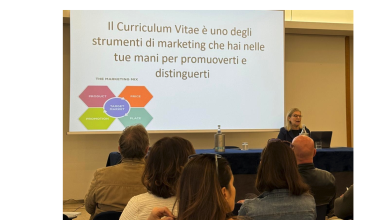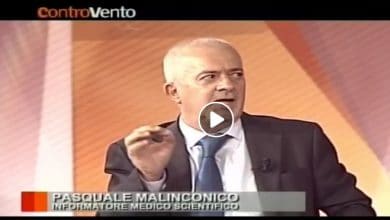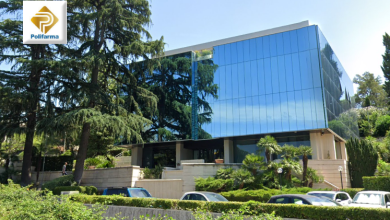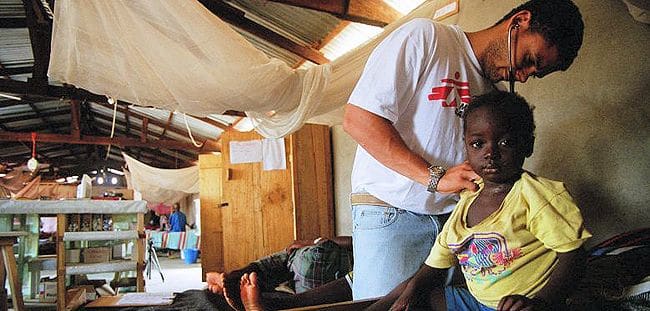
 MSF today launched the global petition "A Fair Shot: The Right Vaccine at the Right Price" to ask pharmaceutical companies Pfizer and GlaxoSmithKline (GSK) to reduce the price of pneumococcal vaccine, which causes a wide range of infections including pneumonia, a US$5 per child (for all three doses) in all developing countries.
MSF today launched the global petition "A Fair Shot: The Right Vaccine at the Right Price" to ask pharmaceutical companies Pfizer and GlaxoSmithKline (GSK) to reduce the price of pneumococcal vaccine, which causes a wide range of infections including pneumonia, a US$5 per child (for all three doses) in all developing countries.
Pneumonia kills nearly a million children every year. After years of unsuccessful negotiations with both companies in an attempt to lower the price of the vaccine for use in its projects and emergency responses, MSF is calling on the public to put pressure on the two companies on World Pneumonia Day . The petition can be signed at the link:
“The pneumococcal vaccine is the world's best-selling vaccine and last year alone Pfizer and GSK raised nearly $4.4 billion from the sale of this product alone,” says Dr. Manica Balasegaram, Campaign Executive Director for access to MSF medicines. “Pfizer and GSK charge such high prices for this vaccine that many governments and humanitarian organizations are unable to buy it to vaccinate children. After making more than $28 billion from pneumococcal vaccine sales, we believe Pfizer and GSK can afford to reduce the price so all developing countries can protect their children from this childhood scourge ”.
MSF has decided to kick off the signature-collecting campaign with a provocative action in front of Pfizer headquarters in New York, with the aim of handing over $17 million to CEO Ian Read, the equivalent of a company's day of earnings from pneumonia vaccine alone. MSF also placed an announcement on the bus stop shelter located right in front of the Pfizer building, with the question: “Hey Pfizer, why are your vaccines priced out of reach for children who need them?”. While in Italy, MSF sent a letter with its requests to the offices of the two companies.
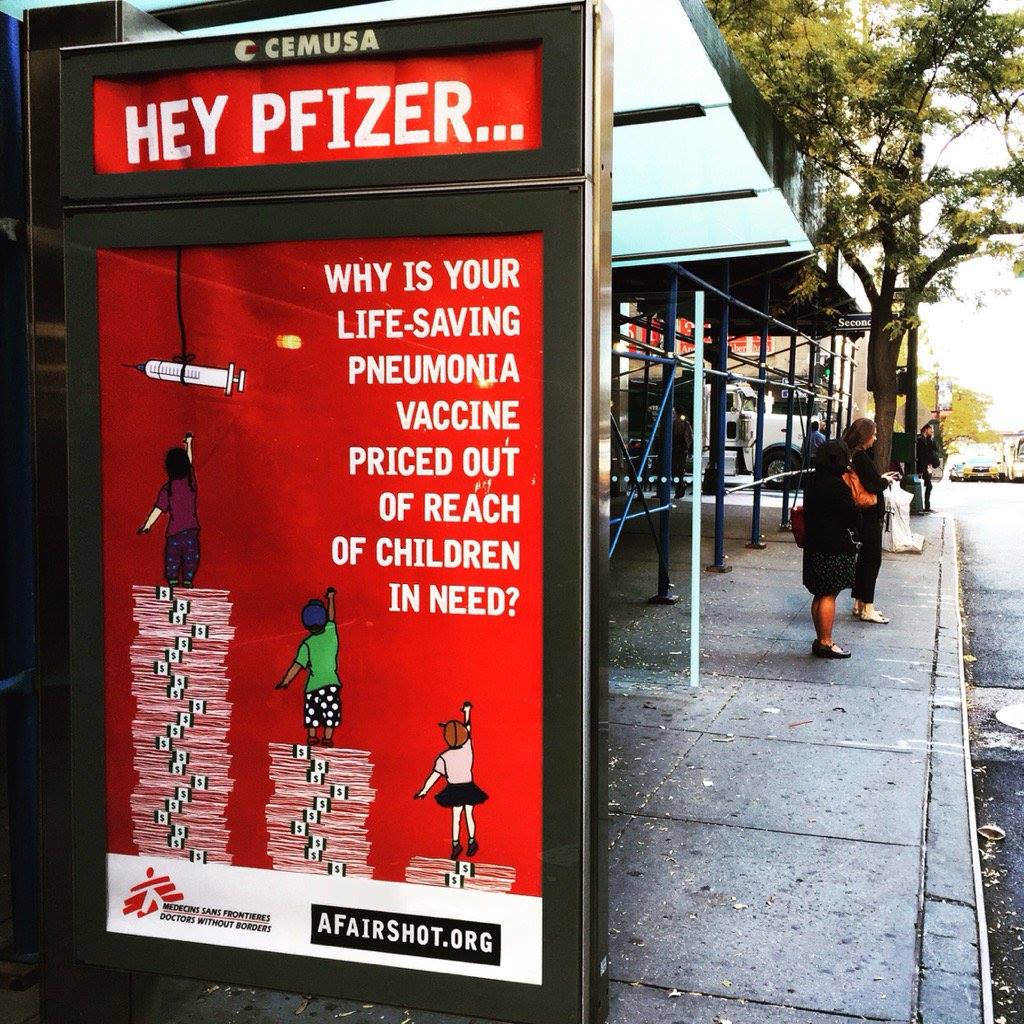
Last January, MSF published its report on vaccine prices, "The right shot: overcoming barriers to obtain vaccines that are more accessible and adapted to the realities of developing countries", which shows how today, in the poorest countries, Since the introduction of new vaccines, it has become 68 times more expensive to vaccinate a child than in 2011, and many parts of the world cannot afford high-priced new vaccines such as pneumococcal.
“We are doctors who have seen too many children die of pneumonia and for this reason we will not give up until we are sure that all countries can afford the vaccine”, continues Manica Balasegaram. "We are calling on everyone to join our global initiative and sign the petition to tell Pfizer and GSK that it is time to reduce the price of the pneumonia vaccine."
In May, 193 governments gathered in Geneva for the annual World Health Assembly, which unanimously called for more affordable vaccines and greater transparency around vaccine prices. these products. Governments in more than 50 countries have highlighted growing inequities caused by the increased financial burden associated with new vaccines; many of them said that the high price of new vaccines such as the pneumonia vaccine presents a clear obstacle to the introduction of such vaccines or a threat to the ability to keep them in routine vaccine schedules. “What good is a life-saving vaccine if the most vulnerable people can't afford it?” concludes Manica Balasegaram.
Our vaccination campaigns:
Every year, MSF teams vaccinate millions of people, both as a response to outbreaks of diseases such as measles, meningitis, yellow fever and cholera, and as routine immunization in projects where it provides health care for mothers and children. In 2014 alone, MSF administered more than 3.9 million doses of vaccines and immunological products. In the past, MSF has purchased pneumococcal conjugate vaccine for use in its emergency operations. MSF is now increasing the use of this and other vaccines to improve routine immunizations and extend the vaccine package used in humanitarian emergencies. MSF has vaccinated children affected by emergencies against pneumonia in Central African Republic, Ethiopia, South Sudan and Uganda.


